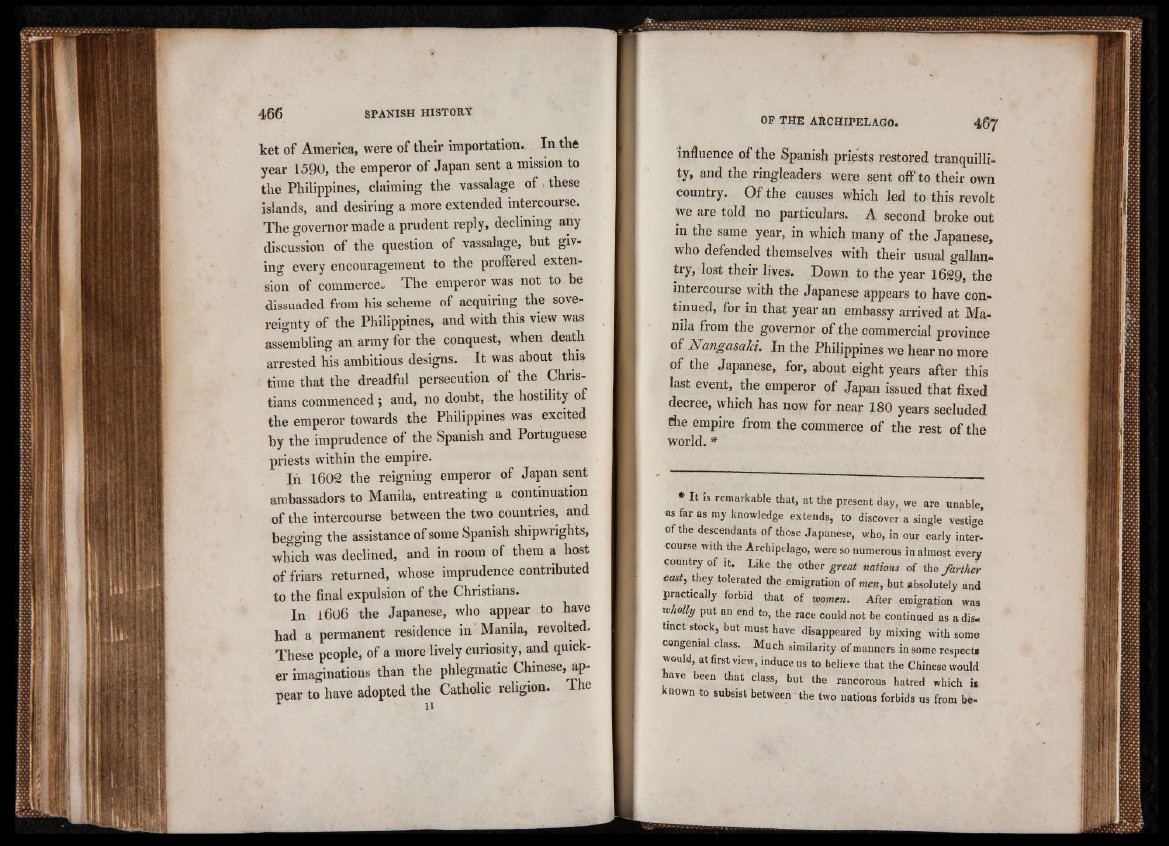
ket of America, were of their importation. In thé
year 1590, the emperor of Japan sent a mission to
the Philippines, claiming the vassalage of these
islands, and desiring a more extended intercourse.
The governor made a prudent reply, declining any
discussion of the question of vassalage, but giving
every encouragement to the proffered extension
of commerce. The emperor was not to be
dissuaded from his scheme of acquiring the sovereignty
of the Philippines, and with this view was
assembling an army for the conquest, when death
arrested his ambitious designs. It was about this
time that the dreadful persecution of the Christians
commenced ; and, no doubt, the hostility of
the emperor towards the Philippines was excited
by the imprudence of the Spanish and Portuguese
priests within the empire.
In 1602 the reigning emperor of Japan sent
ambassadors to Manila, entreating a continuation
of the intercourse between the two countries, and
begging the assistance of some Spanish shipwrights,
which was declined, and in room of them a host
of friars returned, whose imprudence contributed
to the final expulsion of the Christians.
In l606 the Japanese, who appear to have
had a permanent residence in Manila, revolted.
These people, of a more lively curiosity, and quicker
imaginations than the phlegmatic Chinese, appear
to have adopted the Catholic religion. The
influence of the Spanish priests restored tranquillity,
and the ringleaders were sent off to their own
country. Of the causes which led to this revolt
we are told no particulars. A second broke out
in the same year, in which many of the Japanese,
who defended themselves with their usual gallantry,
lost their lives. Down to the year 1629, the
intercourse with the Japanese appears to have continued,
for in that year an embassy arrived at Manila
from the governor of the commercial province
of Nangasaki. In the Philippines we hear no more
of the Japanese, for, about eight years after this
last event, the emperor of Japan issued that fixed
decree, which has now for near 180 years secluded
Che empire from the commerce of the rest of the
world. *
* It is remarkable that, at the present day, we are unable,
as far as my knowledge extends, to discover a single vestige
of the descendants of those Japanese, who, in our early intercourse
with the Archipelago, were so numerous in almost every
country of it. Like the other great nations of the farther
east, they tolerated the emigration of men, but absolutely and
practically forbid that of 'women. After emigration was
wholly put an end to, the race could not be continued as a distinct
stock, but must have disappeared by mixing with some
congenial class. Much similarity of manners in some respect*
would, at first view, induce us to believe that the Chinese would
ave been that class, but the rancorous hatred which is
known to subsist between the two nations forbids us from be